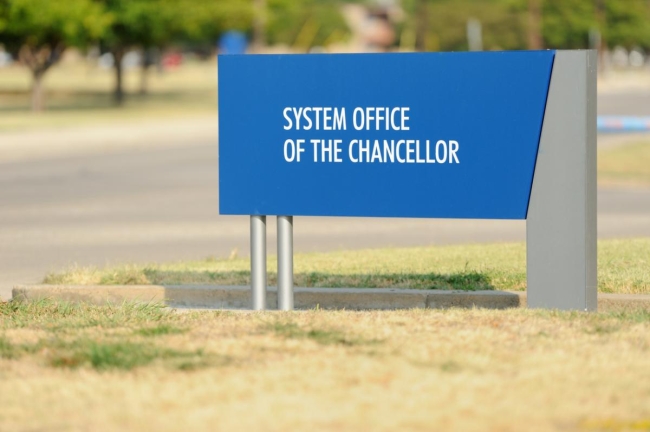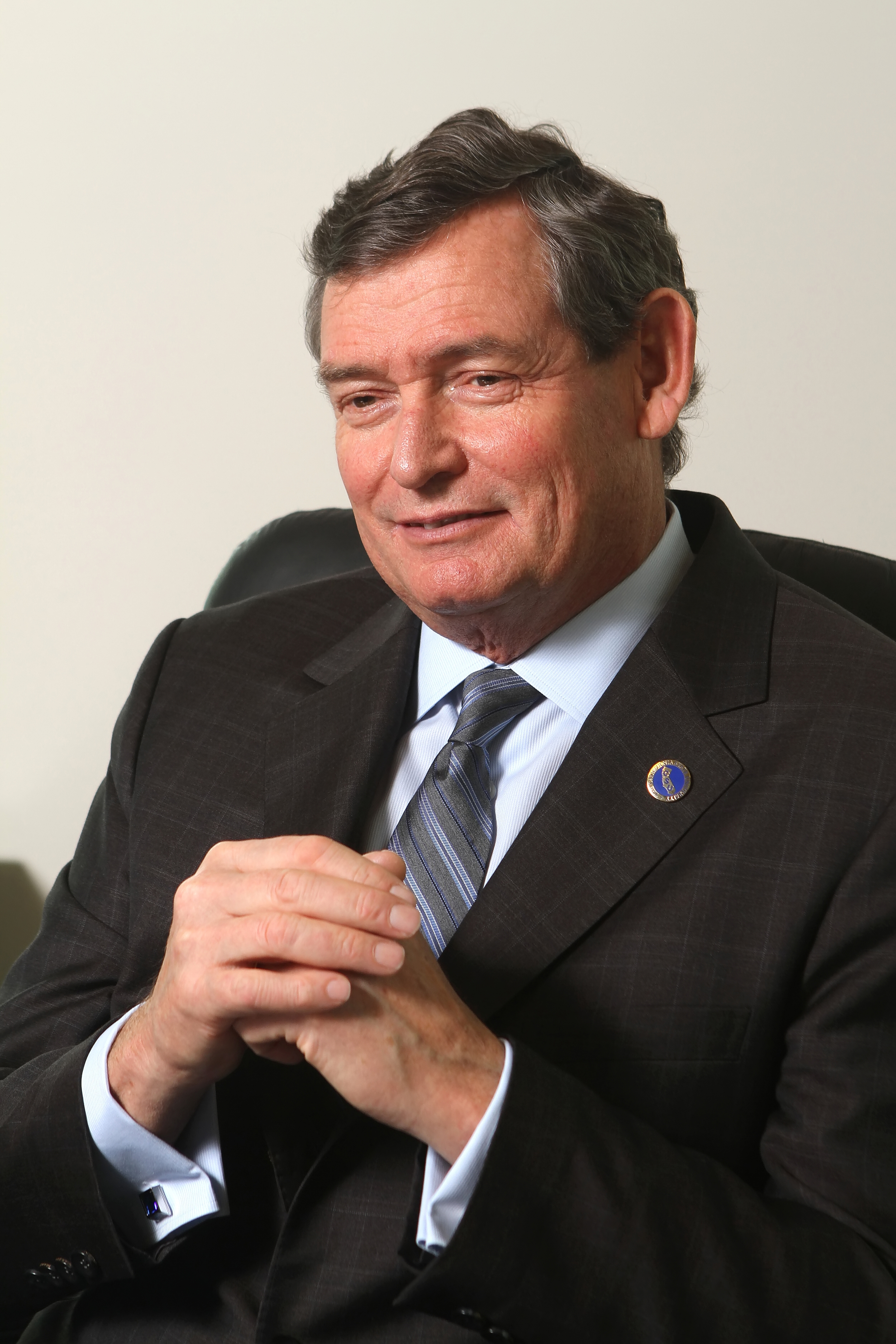You have /5 articles left.
Sign up for a free account or log in.

Istockphoto.com/sshepard
Asked when he decided to delay his retirement, the California State University system's chancellor laughed.
“Oh, about 4 a.m.,” he joked.
Timothy White had been thinking about postponing his retirement from leading the Cal State system for a while. He'd originally planned to exit on July 4, dubbing it his own independence day.
Then, university system trips to Asia were canceled early in the year as the new coronavirus outbreak raged in China. In February, shortly after the first COVID-19 case was confirmed in Washington State, he knew the virus had the potential to spread throughout the United States and to the California State universities he oversees.
“The pandemic was on my mind, and as I watched it come … I thought about why I had thought it was a good time to retire,” White said. He is proud of rising student success metrics over the eight years he's led Cal State. With the university system headed in the right direction, he thought it was time to turn it over to a successor.
But as colleges across the country began to close their campuses, White decided it was the wrong time for a leadership change.
 For college leaders, the coronavirus outbreak has been a crash course in crisis management. Closing campuses to protect students and staff has forced a migration to online learning for which many colleges were underprepared. Room and board refunds and other credits to students are creating holes in operating budgets. The outbreak’s toll on the market has led to diminished endowment values and cautious donors.
For college leaders, the coronavirus outbreak has been a crash course in crisis management. Closing campuses to protect students and staff has forced a migration to online learning for which many colleges were underprepared. Room and board refunds and other credits to students are creating holes in operating budgets. The outbreak’s toll on the market has led to diminished endowment values and cautious donors.
The boards of several colleges with retiring presidents are asking them to stay on through the outbreak.
Alongside White, Leroy Morishita, president of California State East Bay, postponed his retirement through the end of December. Dianne Harrison, president of California State Northridge, will also stay on through the fall of 2020. Morningside College president John Reynders and Kentucky Community and Technical College System president Jay Box announced retirement delays to help their respective institutions weather the outbreak.
The logistics of hiring under current conditions can be tricky. Until recently, there had been a search ongoing for White's replacement.
“The original schedule was to bring finalists in front of the Board of Trustees in March,” White said. “Because of the circumstances, we chose to put that search process on hold.”
Colleges that are currently operating under interim leaders are continuing their searches virtually with a greater sense of urgency, according to Jan Greenwood, partner and president at the search firm Greenwood/Asher & Associates.
Southern Illinois University at Carbondale plans to start two-day virtual interviews with the three finalists for chancellor on Thursday. The University of Wisconsin system has also scheduled videoconference interviews with semifinalists for system president in mid-April.
Asked whether the online interview model presents challenges for the search committee, UW spokesperson Mark Pitsch said in an email that “our process has yet to be inhibited; the committee is just doing it differently.”
But it can be difficult to translate personalities over video calls, said Rod McDavis, managing principal at AGB Search.
“How do you take that face-to-face situation and model that through the means of Zoom or some virtual technology so you can really get a good feel for those personality traits that you get face-to-face?” he said.
Some colleges have informed candidates that they are the top choice for jobs, but they are waiting to present a final offer until the candidates are able to travel to campus, according to both Greenwood and McDavis.
“One end of the continuum is that universities are continuing the searches and deciding to hire without ever meeting in person the person they are hiring,” Greenwood said. Others are “doing on-site interviews with technology, and then letting them know that they will be getting an offer whenever they are able to visit campus.”
The University of Central Florida recently completed its search for a new president after moving the process online in March. Reflecting on the search, Beverly Seay, Board of Trustees chair and chair of the search committee, found that the online interview process actually yielded more community engagement.
“We had over 1,000 [people] viewing in the open forums,” she said. “Most of us had read through all of the 500 responses to the candidates, so we got a lot more feedback than we normally would have received.”
The 1,000-plus view count was a big improvement from the 50 to 60 people who usually attend the open candidate forums, according to William Self, search committee member and Faculty Senate chair.
“I think because people were not there, they were able to see more and they were able to spend more time online to listen to the candidates,” he said.
The coronavirus outbreak didn’t influence what the university was looking for in a president, Seay said.
McDavis noted that the institutions his firm is working with have adjusted their criteria in two ways. The first is that they want to know a candidate can handle crisis management.
“What have they done on their own campus in regards to the coronavirus, how have they handled a crisis in their leadership roles?” he said. Second, they’re looking for “presidents that have some knowledge of online education.”
Hiring a new president sometimes means another college will lose its own. While McDavis doesn’t believe that the candidate pool will suffer as a result of the coronavirus, sitting presidents may have second thoughts about applying.
"I think there is a sense of loyalty," McDavis said. "People don't want to leave in the middle of a crisis."
Greg Fenves, president of the University of Texas at Austin, announced last week that he would leave for Emory University June 30. In his message to the UT Austin community, he expressed similar feelings.
"The timing of this news in the middle of the COVID-19 pandemic is not what I had expected or wanted," he wrote. "Our dedicated faculty and staff have striven to make the spring 2020 semester meaningful for our students. I want you to understand that I remain singularly focused on continuing that work, completing the semester and getting our community back to normal before my presidency ends on June 30.”
Even if candidate pools were to shrink because sitting presidents don't want to leave jobs in the midst of a crisis, colleges and universities will still be able to hire from within. Consider, for example, the University of Missouri at St. Louis. It named Kristin Sobolik permanent chancellor last week after she'd been filling the roles of interim chancellor, executive vice chancellor for academic affairs and provost.
Many qualified candidates are internal.
“I think we’re seeing institutions that are giving their internal candidates a very serious look,” McDavis said.




